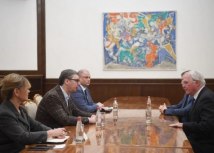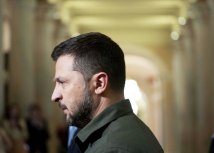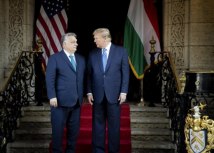PM addresses UNSC session on Kosovo
Serbian Prime Minister Ivica Dačić stated on Friday during the session of the UN Security Council (UNSC) that Belgrade is fully committed to the dialogue with Priština and achievement of lasting peace between Serbs and Albanians, underscoring that reconciliation entails difficult decisions for both sides.
Progress takes political courage and willingness for a compromise, and Serbia is indeed ready for compromises but not for humiliation and blackmails, Dačić said and added that Serbia will not change its principled stand on non-recognition of Kosovo's unilaterally declared independence.
The meetings in Brussels and the willingness to reach a compromise are a testimony of Serbia's commitment to building trust between the two sides, Dačić said and added that the Republic of Serbia will continue cooperating, with openness and sincerity, both on the technical and on the political level.
Latest meetings in Brussels covered important issues, including the functioning of institutions, the issue of the Agreement on Integrated Border Management and exchange of liaison officers and their status, the Serbian prime minister said.
He backed UNMIK's greater involvement and more efficient cooperation between UNMIK and EULEX.
Dačić called on the UN to continue performing its crucial role as the coordinator of all international factors acting under its auspices in Kosovo-Metohija.
UNMIK's mandate in Kosovo needs to remain unchanged and, if possible, get additionally reinforced in the province regardless of anticipated budget restrictions, Dačić said.
We consider it unacceptable for UNMIK's capacities to be additionally limited due to the lack of funds, he said.
It needs to be pointed out that UNIMK is the only legitimate international factor which people in northern Kosovo-Metohija still have trust in, the prime minister noted.
Commenting on the report by UN Secretary General Ban Ki-moon on UNMIK's performance between October 16 and January 15, Dačić pointed to a very unstable and sensitive position of the Serb community and presence of significant security challenges.
The community's freedom of movement gets limited and hampered, the level of security is insufficient, the Serbian language cannot be used, access to institutions is difficult, the necessary conditions for a sustainable return of those who fled their homes do not exist, Serbian cultural and religious heritage is constantly at threat and Serbia's property is taken illegally, Dačić listed.
A total of 93 ethnically motivated attacks happened between October 1, 2012 and January 31, 2013, resulting in one dead and 20 injured, Dačić remarked.
During only a few days in January, 102 gravestones in Orthodox Christian cemeteries were damaged or destroyed, he noted.
A continuous increase in the number of arrests of Serbs without any explanation regarding the legal basis for them has caused additional concern, he stressed.
It causes more pressure on the Serbs, which is both a gross violation of the basic human rights guaranteed by the UN Charter and unacceptable in terms of the fundamental values of the EU, Dačić said.
Although all the required procedures were observed, Serbian officials and public figures are denied entry in Kosovo, which constitutes a breach of the basic human right to freedom of movement, Dačić pointed out, underscoring the January incident when Serbian President Tomislav Nikolic was not allowed to enter Kosovo when he wanted to attend the Christmas service at a Serbian medieval monastery there.
When it comes to the return of the Serbs who were driven out of Kosovo, the data for 2012 indicate only 302 returned that year, unlike in 2011, when 464 returned, Dačić said.
This shows a trend of a continuous decrease in the number of Serb returnees, he added.
Dačić commented on the privatisation in Kosovo by saying that the way the so-called Kosovo Privatisation Agency went about it is worrying.
"The privatisation of the public companies in Serb-populated areas is particularly concerning. The privatisation of the large mining complex Trepca, which has been postponed, is illegal and violates Resolution 1244," Dačić emphasized.
"We point out that the Republic of Serbia, as the guarantor, is still paying off the debt to the IMF, World Bank and Paris and London clubs coming from the loans taken out to assist companies in Kosovo," Dačić said.
There has been a rise in the number of damaged Serb gravestones and cultural monuments, and these incidents “only stress the need for KFOR's continued presence in Kosovo-Metohija,” Dačić said.
The prime minister also called for re-opening the investigation into the pogrom against Serbs in Kosovo-Metohija that took place in March 2004, and was carried out by, as the UN data show, 51,000 people, but no one has been prosecuted.
Dačić called once again for a prominent role of the UN in the probe into human organ trafficking, based on the 2010 report of Council of Europe Special Rapporteur Dick Marty.
“Serbia is ready to continue cooperation with the EULEX Special Investigative Task Force. The truth should be determined in a completely professional and impartial way, particularly taking into account the information relating to the destruction of evidence that was collected by UNMIK. We are still advocating for a significant role of the UN in this investigation,” the prime minister said.
Dačić drew attention to the facts presented in the report on UNMIK's performance that give cause for concern, as the report notes that there has been an increase in the number of complaints about the inefficiency of police and prosecution in relation to the investigation into crimes affecting minority communities in Kosovo-Metohija.
An insufficient level of rule of law in Kosovo-Metohija was noted in the annex of the report which deals with EULEX's performance, and it points to the Compact Agreement. Once again, the question arises as to how status neutral is that move of EULEX, “especially at this very sensitive moment, when any rash or partial move could lead to consequences of immeasurable proportions, the Serbian prime minister warned.



